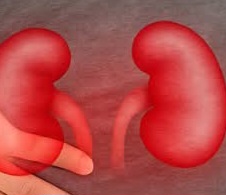Your kidneys work tirelessly to filter waste, balance fluids, and keep your body running smoothly. But certain daily habits, often overlooked, can put stress on these vital organs. By making small changes, you can support your kidney health and feel your best. Let’s explore 18 common habits that may harm your kidneys and practical ways to protect them.
Why Kidney Health MattersYour kidneys filter about 50 gallons of blood daily, removing toxins and excess fluids through urine, according to the National Kidney Foundation. They also regulate blood pressure and produce hormones for red blood cell production. When kidney function declines, it can lead to fatigue, swelling, or more serious issues. Adopting kidney-friendly habits now can make a big difference over time.The Role of Daily HabitsSmall choices, like what you eat or how much water you drink, directly impact your kidneys. Research from the CDC shows that lifestyle factors contribute to kidney stress in many Americans. Let’s dive into habits to watch out for.Habits That May Harm Your KidneysHere are 18 daily habits that could strain your kidneys, along with tips to make healthier choices.1. Not Drinking Enough WaterDehydration forces your kidneys to work harder to filter waste. The Mayo Clinic recommends 8–12 cups of water daily for most adults, depending on activity and climate.Tip: Carry a reusable water bottle and sip throughout the day. Add lemon or cucumber for flavor.2. Eating Too Much SaltHigh sodium intake can raise blood pressure, which stresses your kidneys. The American Heart Association suggests limiting sodium to 2,300 mg daily.Tip: Check food labels and cook with herbs instead of salt.3. Overloading on SugarExcess sugar may contribute to obesity and diabetes, both risk factors for kidney issues, per Harvard Health. Sugary drinks are especially harmful.Tip: Swap soda for sparkling water or unsweetened tea.4. Consuming Too Much ProteinHigh-protein diets can strain kidneys, especially if you have existing kidney concerns, according to WebMD.Tip: Balance protein with vegetables and whole grains. Consult a dietitian for personalized advice.5. Ignoring High Blood PressureUncontrolled blood pressure damages kidney blood vessels over time. The CDC notes that hypertension is a leading cause of kidney stress.Tip: Monitor your blood pressure regularly and follow your doctor’s advice.6. SmokingSmoking reduces blood flow to the kidneys, impairing their function, per the National Kidney Foundation.Tip: Seek support to quit, like counseling or nicotine replacement therapy.7. Drinking Alcohol ExcessivelyHeavy drinking can dehydrate you and harm kidney tissue, says the Mayo Clinic.Tip: Stick to moderate drinking—up to one drink daily for women, two for men.8. Overusing PainkillersFrequent use of over-the-counter pain relievers like ibuprofen can harm kidneys if taken long-term, per WebMD.Tip: Use painkillers sparingly and discuss alternatives with your doctor.9. Skipping Regular ExerciseA sedentary lifestyle may increase risks for obesity and high blood pressure, both hard on kidneys.Tip: Aim for 30 minutes of moderate activity, like walking, most days.10. Not Getting Enough SleepPoor sleep can raise blood pressure and stress hormones, affecting kidney health, according to Harvard Health.Tip: Aim for 7–9 hours of sleep nightly with a consistent bedtime routine.11. Eating Processed FoodsProcessed foods are often high in sodium and phosphorus, which can strain kidneys, per the National Kidney Foundation.Tip: Choose fresh fruits, vegetables, and whole grains.12. Holding in UrineDelaying bathroom trips can lead to urinary tract infections, which may affect kidneys, says WebMD.Tip: Go when you feel the urge, especially during long meetings or travel.13. Consuming Too Much CaffeineExcess caffeine may raise blood pressure and stress kidneys, per the Mayo Clinic.Tip: Limit coffee or energy drinks to 1–2 cups daily.14. Ignoring StressChronic stress can elevate blood pressure, indirectly harming kidneys, according to Harvard Health.Tip: Practice relaxation techniques like deep breathing or yoga.15. Not Eating Enough Fruits and VegetablesA diet low in produce may lack antioxidants that protect kidneys, per the National Kidney Foundation.Tip: Aim for 5 servings of fruits and vegetables daily.16. Skipping Regular CheckupsKidney issues often have no symptoms early on. Regular doctor visits can catch problems early, says the CDC.Tip: Schedule annual checkups and discuss kidney health.17. Overdoing Red MeatExcess red meat can increase acid levels in the body, straining kidneys, per WebMD.Tip: Swap red meat for fish, poultry, or plant-based proteins a few times a week.18. Neglecting Dental HygienePoor oral health can lead to infections that may affect kidneys, according to the National Kidney Foundation.Tip: Brush twice daily and see your dentist regularly.How to Build Kidney-Friendly HabitsMaking small changes can go a long way. Here’s a simple plan to start:Hydrate Smartly: Set reminders to drink water throughout the day.Eat Balanced Meals: Focus on whole foods and limit processed items.Move More: Add short walks or stretches to your routine.Check In: Monitor blood pressure and schedule doctor visits.Share this article with a friend to spread the word about kidney health!When to Talk to Your DoctorIf you notice symptoms like swelling, fatigue, or changes in urination, contact your healthcare provider. Early action can protect your kidneys. Even without symptoms, discuss kidney health during routine visits, especially if you have risk factors like high blood pressure or diabetes.Explore more health tips on our site to keep your body thriving!Final ThoughtsYour kidneys are unsung heroes, working hard every day. By avoiding these 18 habits and adopting healthier choices, you can support their function and overall well-being. Start with one or two changes, like drinking more water or cutting back on salt, and build from there. Your kidneys will thank you!*Disclaimer: This article is for informational purposes only and does not substitute professional medical advice. Consult your doctor before making health changes.Think Your Kidneys Are Safe? These 18 Daily Habits Say Otherwise
